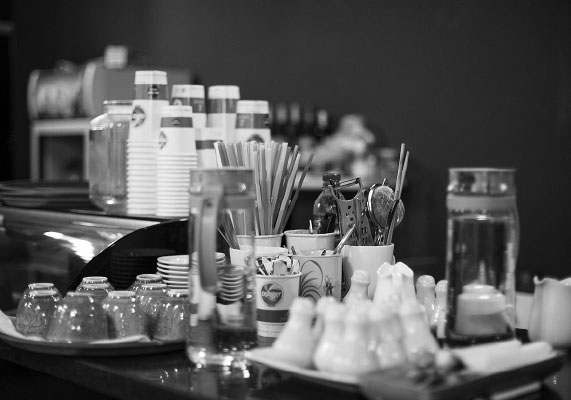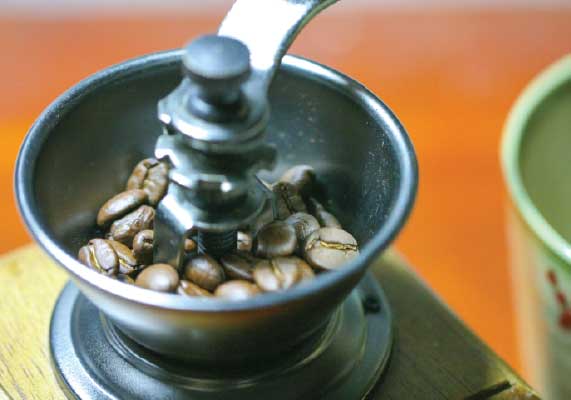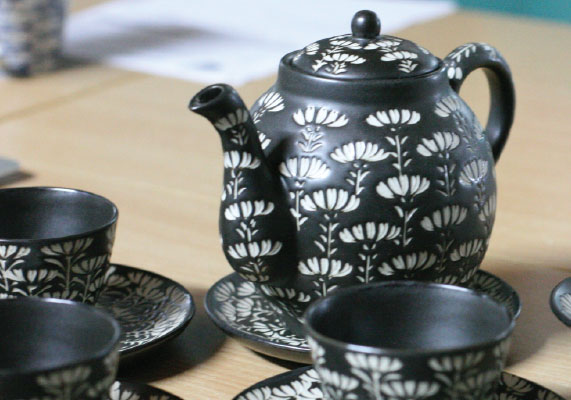2004 – Beginning at the grass roots
The Advancement of Community Empowerment and Partnership (ACEP) launched a development project to support coffee farmers in Huong phung commune, Huong hoa district in the central Vietnam province of Quang tri.
The outcomes of the project were improved living conditions within the commune; the development of education and recreational facilities for youth, hygience and sanitation improvements, and the construction of transport infrastructure including roads and bridges.
Through the project and ongoing support in the area, ACEP has developed a deep understanding of the living needs of the local coffee farming community and the issues they face bringing their coffee products to the market.
2005 – Capacity Development
ACEP conducted a post evaluation for a three years project of Public/Private Partnership for sustainable coffee development of Quang tri. It was identified in the research the local farmers had the capacity to produce much higher quality coffee. It was found that the reasons for unsustainable coffee production in the area did not come from a lack of farmers’ knowledge, but the way of buying and selling cherries.
2006 – Prepare for quality improvement
Coffee farmers in Khe sanh encountered quality issues during the 2006 harvest season. During this season companies accepted to buy low grade cherries that was plucked instead of hand-picked, unripe or bruised and even sunk in water. The quality requirements of traders were low, and also the standards of the farming in the region reflect this standard.
With ACEP’s continued involvement in the region, quality issues were identified throughout the supply chain. ACEP prepared a project to address quality issus and to improve the supply chain from the farmer to the customer.
2007 – Quality improvement
Funded by the Ford Foundation, ACEP launched the first phase of Huong hoa Coffee Farmer Support project aims to improve and grow quality coffee harvest. The project encouraged coffee farmers to work in groups, supported the application of good agriculture practices in growing their crops, practiced hand picking to harvest and provide facilities to process the bean in the region to achieve the premium single-origin quality.
2008 –Strengthening the supply chain
Seven Quang tri coffee farming groups formed in seven villages of Huong phung, which are then formed to a cooperative, producing the first coffee to meet the code of conduct developed by ACEP achieving good agriculture practices. As the groups representative, ACEP applied for international certification of the code of conduct through UTZ certified program.
2009 – Achieving UTZ certification
The Khe sanh coffee farming co-operative, consiting of 125 households achieving UTZ certification. The certification covered the co-operative’s 180 hectares in which good agriculture practices was achieved for an annual harvest of 200 tons of single origin arabica beans. Struggling to connect with international buyers, the year’s harvest was sold domestically.
Identifying the farmers’ needs to promote their product to new markets, the first Oriberry retail shop was opened in Hanoi’s Old Quarter. This established a direct link between the coffee farmer and the customer. The retail shop opened in partnership with Indigenous Vietnam handicrafts promoting the artisan crafts produced and developed.
2010 – Seeking new markets
In 2010 Khe sanh Indigenous Products Cooperative was established as a part of ACEP’s second phase of the Ford Foundation funded coffee development project. The cooperative consisted of farmers who had desmonstrated a strong commitment to best coffee practices in Khe sanh area since the launch of program in 2007.
Failing to find a certification program affecting in providing the cooperative export opportunities, ACEP initiated Oriberry. With the support of ACEP, Oriberry utilised the support of Vietnam leading coffee experts creating a structure to engage with both retail and wholesale markets.
The ongoing project in Thai nguyen province assessed the needs of the Minh Lap tea production cooperative, supporting the adoption of VietGAP. The product was connected to the local market through Oriberry retail store, offering producers fair and above the domestic market prices.
2011 – Maintaining Good Agriculture Practices
As Oriberry has grown and become more established, the product range has expanded to incorporate products from coffee and tea farmers in many regions of Vietnam. The farmers apply good agriculture practices and are wanting to expand their markets and receive a fair price for their harvest.
Oriberry opened the second shop along Ma May street of Hanoi’s Old Quarter. The small coffee shop offered takeaway European style coffee, cartering to the tourists who frequented the area.
2012 – Café opens at Hanoi’s West Lake
Oriberry opened a café on Xuan dieu street at the popular West Lake area. The two levels café offers European style coffee as well as a selection of fresh juices and light meals. Complete with its rooftop balcony, the café location provide customers with panaromic views of West Lake.
Failing to maintain effectiveness in the Old Quarter with tiny space, the shop in Ma May was closed this year.
2013 –Improving the supply chain sustainability
While Oriberry sale department expanded wholesale markets, the production department tried to work more with farmers in different fields and location to strengthen the supply chain sustainability.
Difference from the model of Quang tri, in Dien bien, Son la and Lam dong, we worked with smaller groups and individual farmers. By this approach, we could create more “farm to cup” model while Oriberry is still very small. Farmers/processors from Quang tri had been invited to farmer exchange trip to those locations.
2014 – Improvement of products and services
In the farmingsection, beside contract farming, maitaining GAP, Oriberry tested Typica varieties of Lam dong to other locations and work with more farmers in Dak Lak province where Robusta coffee mainly planted.
Oriberry has been improved the production and sevices sections by purchasing new roasting machine, refreshed two shops, build up our own standard of performance for providing service. In this year, we also participated many social oriented services such as 8 barista training courses including street children, 7 charity bazaars, and coffee experience tours…


